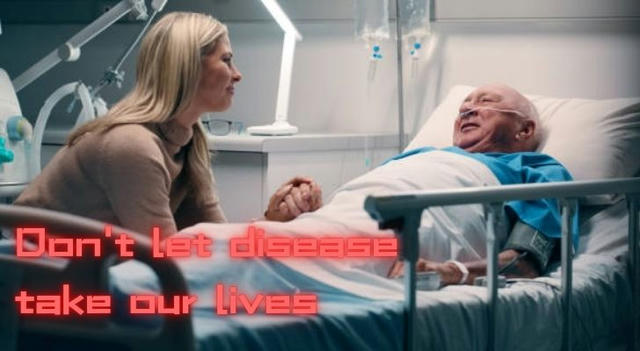Immunotherapy Should Be for All Patients—Not Just the Wealthy
💡 "When cancer patients hear ‘There’s hope,’ their first thought shouldn’t be, ‘Can I afford it?’"
Immunotherapy has revolutionized cancer treatment, offering many patients a real shot at survival. Unlike traditional chemotherapy and radiation, it has fewer side effects and can provide long-term remission—even for those with advanced cancer.
But there's a major problem: the cost is staggering.Why is a life-saving treatment out of reach for so many? Does insurance cover it? Are there ways to reduce the financial burden? And most importantly, what needs to change to make immunotherapy accessible to all? Let’s break it down.

1. The Crushing Cost of Immunotherapy—Who Can Afford It?
Fighting cancer is hard enough. Facing a six-figure medical bill makes it even harder.
The High Cost of Immunotherapy
Keytruda (pembrolizumab): $10,000-$15,000 per dose, $100,000-$150,000 per year—long-term treatment makes costs even higher.
CAR-T Cell Therapy (Kymriah, Yescarta): $373,000-$475,000 per treatment, excluding hospital stays and follow-ups.
Even with insurance, out-of-pocket costs (co-pays, deductibles) can still be overwhelming.
PPO plans: cover 70%-90%, but co-pays remain high.
HMO plans: are more restrictive, covering only certain hospitals and drugs.
➡ Even with insurance, patients can still owe $20,000-$50,000 or more. So what are the options for those struggling to pay?
2. Who Can Help Pay for Immunotherapy?
If insurance doesn’t cover enough, there are programs and organizations that can help lower costs.
(1) Drug Company Assistance Programs Many pharmaceutical companies offer financial assistance to eligible patients.

🔹 Merck:Keytruda® Patient Assistance Program
🔹 Bristol-Myers Squibb: Opdivo® & Yervoy® Patient Support
🔹 Pfizer: Pfizer RxPathways
🔹 AstraZeneca:Access 360
Who qualifies? Typically, these programs are for patients who lack insurance or meet income guidelines.
(2) Nonprofits & Crowdfunding
Nonprofit Organizations (Help with medical bills)
The Assistance Fund(helps with immunotherapy costs) CancerCare Co-Payment Assistance Foundation (covers co-pays for cancer treatment) Patient Advocate Foundation (helps negotiate medical bills and insurance issues)
Crowdfunding Platforms
GoFundMe (many patients raise money for treatment this way)
GiveForward (medical fundraising platform)
💡 ➡ If you or a loved one are considering immunotherapy, check insurance coverage first, then explore assistance programs and charitable support to ease financial strain.
3. What Needs to Change to Make Immunotherapy More Affordable?
Immunotherapy should be available to everyone who needs it—not just those who can afford it. So how do we get there?
(1) Expand Insurance Coverage & Reform Healthcare Policies
Medicare & Medicaid should cover more immunotherapy treatments.
Private insurers should lower co-pays and improve affordability.
(2) Lower Drug Prices & Increase Competition
Encourage biosimilars (generic alternatives for biologic drugs) to enter the market.
Implement stronger price regulations to prevent excessive drug costs.
(3) Strengthen Financial Assistance & Charitable Support
More pharmaceutical companies should offer assistance programs.
Expand nonprofit funding to help low-income patients access treatment.
💡 ➡ The future of immunotherapy isn’t just about medical advancements—it’s about making sure every patient, regardless of income, has access to these life-saving treatments.
4. Final Thoughts: A Breakthrough That Shouldn’t Be a Luxury
Cancer doesn’t discriminate by income, and neither should access to life-saving treatments. Immunotherapy is one of the most promising medical breakthroughs in recent history, yet its high cost puts it out of reach for many who need it most.
If you or a loved one are considering immunotherapy, here’s what you can do now:
Check insurance coverage (PPO, Medicare, Medicaid).
Apply for pharmaceutical assistance programs (Keytruda, Opdivo, etc.).
Look into nonprofit support or crowdfunding (GoFundMe, The Assistance Fund).
On a larger scale, real change will come from:
Expanding insurance coverage for immunotherapy.
Encouraging biosimilars to lower costs.
Strengthening assistance programs and nonprofit support.
💡 Immunotherapy is a medical miracle—but it shouldn’t be reserved for the wealthy. With policy changes, industry reforms, and stronger financial support, we can make sure that life-saving cancer treatment is within reach for every patient who needs it.
